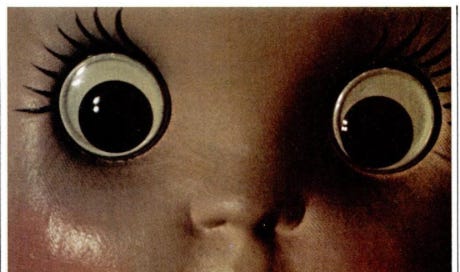When I was younger, I used to avidly read a magazine called Reminisce. It was a bi-monthly publication that focused on older people’s memories of the earlier times. They would send in stories, which would be clustered by category (i.e. ‘first date’, ‘cinema’, ‘childhood toys’, etc), then organized into feature sections within the magazine. Somehow, it attracted by interest, enough that I actually asked my parents for a subscription! Clearly I’ve always been interested in stories from the past, even at a young age.
When it was first published in the early nineties (1990s, that is!), it seemed that most of the people that were sending in stories were focused on the first few decades of the 1900s, which makes sense. Then, as more readers started sending in stories, the focus grew to the twenties, thirties and particularly the forties. Of course, this means World War II time. Being a general interest publication, these wartime stories were mostly pleasant ones - even the ones told by veterans who served overseas (and nationally). Having had two grandfathers who served during World War II, and whom shared some of their experiences with me in honest detail, I knew that it wasn’t all Sunshine, Lollipops and Rainbows during the war. And it’s fair to assume that the stories being selected for publication in Reminisce were chosen for their digestible quality. It’s hard to imagine serious articles on Wartime atrocities side-by-side with playful fair like ‘memories of the five-and-dime’ and ‘favorite childhood foods’. That wasn’t what kind of magazine it was. I totally get it.
I haven’t kept up with Reminisce magazine in years, unless I stumble upon a copy in a doctor’s office. (Remember when they used to have magazines? I could almost submit THAT memory to Reminisce, and perhaps in wonderfully absurdist fashion, they could do a feature on remembering when doctor’s office’s had magazines.) In the more recent issues, I’d noticed that the decades were shifting, with the focus on memories being on baby boomer stories from the fifties and sixties. Heck, at any rate they are probably now publishing stories of ‘first arena rock concerts’ and ‘where were you when MTV aired’? I joke, but the truth is, with any magazine focusing on reader’s submissions, as the population ages and generations shift, the publication’s focus has to shift as well.
Why do I bring this all up? If you’ve noticed, America has been undergoing a revisionist history of its own for a while now. Drumpf has a fascination with the McKinley age of industrialization, but also clearly harkens his mind back to mid-century America, with the GOP’s call to bring back the values of that era. You know, the era when blacks were segregated, anti-war protesters were harassed and beaten, when there was a Cuban missile crisis, when the LGBTQ+ community was kept in the shadows….you know, those good old days. I guess if you prefer to see America as nothing more than apple pie and Mayberry USA, then the set of the Andy Griffith Show is a slice of paradise that needs expanding. And since Drumpf sees the world through an orange-hued television screen, it makes complete sense he and his followers would think this way.
While many of us may enjoy the music and culture of mid-century times, there’s no way culturally and politically that I’d wish for a return of the politics and social injustice of the era. No one sane would want to. But it seems obvious more and more that a fair swath of the intelligence-challenged population does, at least the ones that voted for the GOP’s branding to make America great again. These are people that have grown accustomed to a society where everything is bigly, where quantity is better than quality, and superlatives rule over reason. They long to
Of course, it should be painfully obvious that once the culture door is unlocked, you can’t just cram it all in the closet and wind the clock back fifty years, no matter how hard you try. Like it or not, culture evolves and devolves - and I don’t suspect the kids that’ve grown up amongst multi-cultures and watching drag race contests on TV are going to want to give it all up for an all-expenses paid trip to Mayberry.
Of course, one doesn’t have to pit small towns versus big cities, and that’s not what this is about. Even the smallest towns are no Mayberry - after all, that was a fictious television show, something many who watch it seemingly fail to grasp. It never existed. If anything, it’s become a vestige, an ideal, a dream to many of what they would like to see America become. Hey, I’m all for bringing back the five-and-dime and corner stores and milkshakes and customer service and a smile. But you don’t have to whitewash history to do it, and that’s what Drumpf and his followers fail to grasp.
Until then, it seems like him and his followers are pressing full steam ahead on their warped vision of a sanitized, commercialized, homogenized backwards America. You can count me out of that. I’m more interested in finding a Time Machine that can take me back to the mid-century record store bins!
In the meantime, I’ll leave you with some delightfully warped pearls of wisdom on the subject from one of the finest American songsmiths of any generation, Mr. Tom Lehrer, performed in Copenhagen in 1967.



